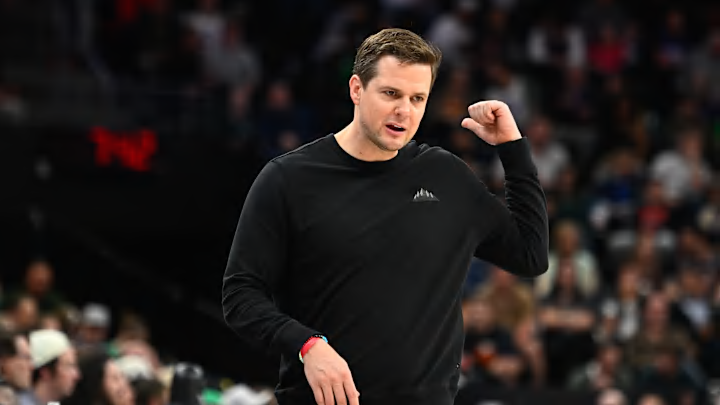Unlike many franchises, the Utah Jazz don't change head coaches very often. In fact, they have had only five individuals hold the job full-time over the past 40-plus years - Will Hardy, Quin Snyder, Ty Corbin, Jerry Sloan, and Frank Layden.
So when Will Hardy's old franchise, the San Antonio Spurs, suddenly looked to replace longtime head coach Gregg Popovich, the rumors that Will Hardy was considered for the job were unknown territory for Jazz fans, owing to the stability that coaches often receive with the Utah Jazz franchise.
While Hardy was already under contract for two more seasons (2025-26 and 2026-27), it wouldn't be unheard of for another team to express interest, especially one like the Spurs, where Hardy previously coached under Popovich from 2015 to 2021.
When Mitch Johnson was named Popovich's successor in San Antonio on Friday, the Jazz didn't waste any time, making sure nobody else would come after their coach for a while.
On Monday, Will Hardy received a multi-year extension that keeps him in Utah through the 2030-31 season.
While that is good news for Jazz players who enjoy playing for Hardy, the question could be asked: Why such a long extension for a coach who has yet to see the playoffs, and especially after a season that resulted in a franchise-worst 17-65 record?
The answer isn't too hard to grasp.
Other teams were likely showing interest in Hardy
The Spurs may have been the first, but they wouldn't have been the last. Especially with fewer years and dollars remaining on his old contract, it would be an easier sell for another team to convince Will Hardy to jump ship. Why continue building from the ground up when you can take over a team on the cusp of the playoffs, or even one already in contention?
The Denver Nuggets and Phoenix Suns are officially the only two teams with openings right now. However, other teams may yet make coaching changes this offseason, especially those that just exited the play-in and playoffs in the last week or so.
While Hardy isn't on the level of Popovich or Erik Spoelstra of the Miami Heat, he is young and has plenty of experience with star players, young rosters and he would come at a lower cost than the high-level candidates that lost jobs in the last year - coaches like Mike Budenholzer, Mike Malone, Taylor Jenkins, Mike Brown and Frank Vogel.
Owners may have viewed Hardy as a better candidate to connect with their teams and get the most out of talented rosters, similar to Kenny Atkinson in Cleveland and JB Bickerstaff in Detroit, both of whom helped their teams make significant improvements in Year One on the bench.
When other teams show even preliminary interest in a team's existing coach, the best way to keep that coach off the market is to lock him up with a new extension. And it appears that is what Danny Ainge chose to do, not taking any chances that another team might drop a huge offer in Will Hardy's lap.
